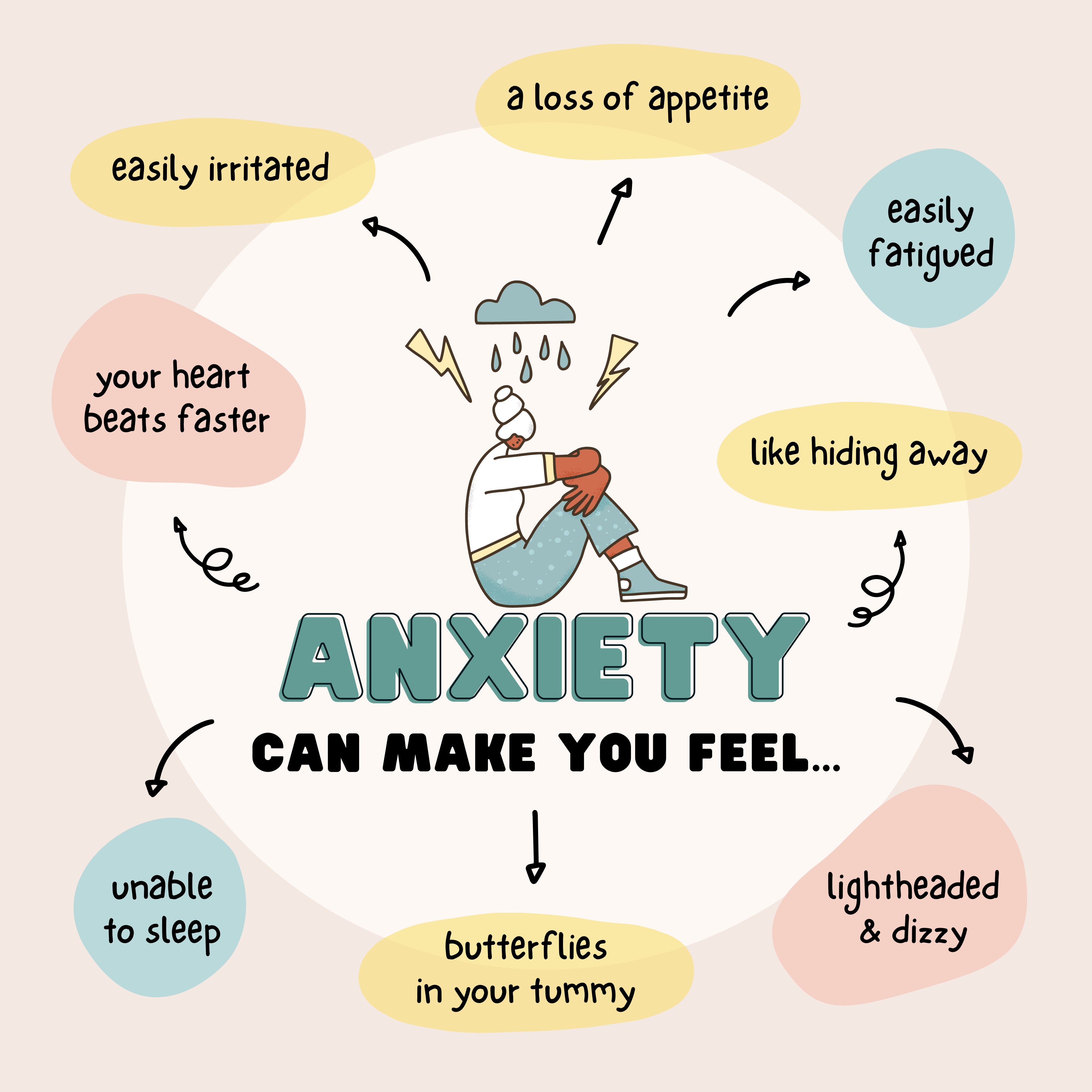Anxiety: Recognising the Signs and Seeking Support

Anxiety is a common mental health condition that can have a significant impact on one's daily life. While it is normal to experience occasional feelings of worry or nervousness, persistent and excessive anxiety can be debilitating. It is important to recognise the signs and seek appropriate support.
One of the key symptoms of anxiety is a loss of appetite. Individuals may find themselves unable to eat or feel a complete lack of interest in food. Difficulty sleeping is another common sign, with many experiencing restless nights or an inability to fall asleep altogether
Feelings of lightheadedness and dizziness are also frequently reported by those struggling with anxiety. Some may even feel the urge to hide away from social situations, preferring to withdraw and isolate themselves. Fatigue and irritability are also common, as the body and mind become overwhelmed by the constant state of tension.
Importantly, anxiety can also manifest physically, with the heart beating faster and a sense of unease or panic. These physical symptoms can be just as debilitating as the mental and emotional aspects of the condition.
If you are experiencing any of these signs, it is crucial to seek support from a healthcare professional. With the right treatment and coping strategies, it is possible to manage anxiety and regain a sense of control over your well-being.

A self-help resource might be the first treatment option your GP offers you. This is because it's available quite quickly, and there's a chance it could help you to feel better without needing to try other options. Self-help could be delivered through:
- Workbooks. For example, your GP might recommend particular titles from a scheme called Reading Well which offers Books on Prescription. This scheme is supported by most local libraries, so you can go and check the books out for free – you don't actually need a prescription from a doctor.
- Online cognitive behavioural therapy (CBT) programmes. There are several online CBT courses to treat anxiety and panic attacks.
If self-help resources aren't likely to help with the anxiety problems you're experiencing, or you've already tried them and they haven't helped, your doctor should offer you a talking treatment. There are two types of talking treatment recommended for anxiety and panic:
- Cognitive behavioural therapy (CBT) – this focuses on how your thoughts, beliefs and attitudes affect your feelings and behaviour, and teaches you coping skills for dealing with different problems.
- Applied relaxation therapy – this involves learning how to relax your muscles in situations where you normally experience anxiety.
Your doctor might offer to prescribe you medication to help manage your symptoms. Some people find it helpful to try talking therapies and medication at the same time, but medication shouldn't be the only thing you're offered.